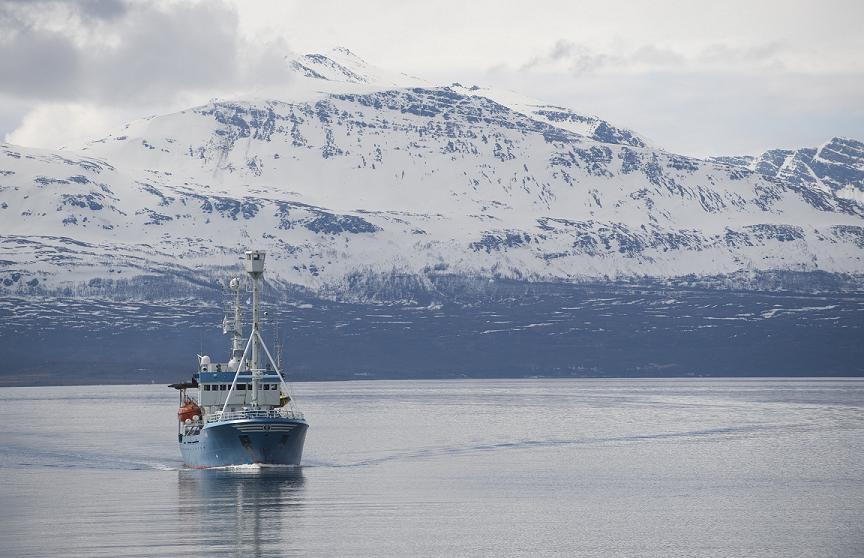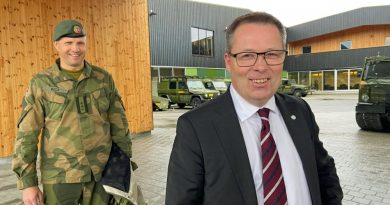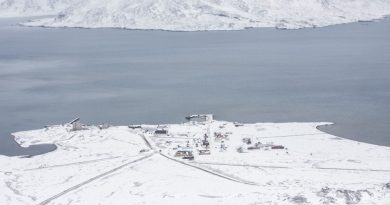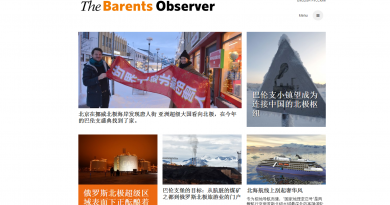Blog: Permanent Arctic Council Secretariat opens in Tromso, strengthening Norway’s position in Arctic

The Arctic Council, the most important multilateral organization in the circumpolar north, opened the offices for its permanent secretariat in Tromsø, Norway on Monday. This is an important moment for the now 17 year-old body because it visibly signifies to the rest of the world that the Arctic Council exists outside of the ethereal alphabet soup of intergovernmental organizations. It has a concrete presence in Tromsø, a city that bills itself as the “gateway to the Arctic.” Tromsø is not yet a capital for the Arctic Council in the way that Brussels is the capital of the European Union. Yet it will be the administrative hub for activities related to the Arctic Council, whether that means archiving old documents or organizing logistics for meetings. Norwegian Prime Minister Jens Stoltenberg nominated the city to be the “Arctic capital,” a title other cities, notably Reykjavik, have also pursued through tourism campaigns and discourse by government officials.
In June 2012, when former U.S. Secretary of State Hillary Clinton visited Tromsø, Stoltenberg proclaimed:
“Right now, we will be able to present the Tromso Fram Center, which is a milestone in the high north strategy of the government to build a meeting center of excellence in Tromsø. This center will be complete by 2030. We are going to have researchers operating out of this place. And here goes – will be located in the new building – the permanent secretariat of the Arctic Council, which we both helped vote and decide last year.”
Nunatsiaq News reports that the Arctic Council’s permanent secretariat is located in the back of the High North Research Centre for Climate and the Environment (Fram Centre for short). The story mentions that secretariat employees will have to walk by offices “full of maps and scientific instruments and pictures of ice and snow, which belong to many of the world’s leading experts in polar research.” The newspaper quoted the Magnus Johannesson, the secretariat’s new director, as saying, “It’s a stimulating environment with all the research in the Arctic region and the people working on Arctic issues, so that helps.”
More scrutiny, however, should be paid to the fact that while the Fram Centre is home to world experts in polar research, many of these experts are also Norwegian. Members of the Fram Centre, for instance, include the Norwegian Mapping Authority, the Geological Survey of Norway, and the Norwegian Institute of Air Research, to name a few (the full list is here). The situating of the Arctic Council’s permanent secretariat in Norway enhances the country’s stature within the Arctic while peripheralizing places like Alaska, Greenland, and Siberia.
“Mobilizing knowledge”
Visions and Strategies (PDF), a Norwegian white paper outlining the country’s strategy for the Arctic, states that in order for the country to succeed in cooperating the north and improving the lives of northern residents, it must “mobilise knowledge, individual actors, centres of expertise and capital.” The idea of mobilizing centers of expertise (and capital) is oxymoronic because by their very nature, centers aim to amass goods, knowledge, people, and capital. They fix flows rather than mobilize them. The centripetal forces leading to the location of more research institutes, and now the Arctic Council, in Tromsø is occurring at the expense of other locations in the Arctic. The circumpolar north is already unevenly developed. The economy in Tromsø, for instance, is highly advanced, relying on industries like satellite technology, medicine, and tourism. Yet in places in Nunavut, iron ore mines sit side by side indigenous subsistence hunters. Thus, the Arctic Council should pay special attention to decisions it makes to render its structures of governance permanent because such actions could exacerbate uneven development in the Arctic.
Whereas the chairmanship rotates every two years, making the Arctic Council a fairly democratic body within itself, the organization seems to be moving towards a more traditional structure of international governance. In the United Kingdom, a 2010 paper by British geographers Gordon Macleod and Martin Jones made the radical suggestion that in order to create a more mobile politics, national institutions such as Parliament could travel to the various provinces instead of staying fixed in London. But what has actually happened, Macleod and Jones observe, is that investment in the Wembley sports stadium, the 2012 London Olympics – and even the Queen’s Jubilee, I might add – “only serve to underline the unrelenting economic and cultural hegemony of a London-centred super-region.” The same could be happening in the Arctic, where a permanent secretariat could one day overshadow the traveling chairmanship.
A key player
The Arctic Council should thus be wary of creating a “super-region” for the Arctic in northern Norway. Norway has made its northern reaches important domestically, with the government choosing to move its National Joint Headquarters, the operational command centre for the Norwegian Armed Forces, to Reitan (outside Bodø, also in northern Norway). Its investments in northern Norway have paid off internationally, as now the Arctic Council is making northern Norway a sort of Arctic super-region.
Norway is a key player in the Arctic, but to make sure that the Arctic Council remains an organization of equals, at least among the eight member states, a more mobile politics in the Arctic needs support. The Arctic is home to many voices, from Sami reindeer herders to multinational oil corporations to Alaskan fishermen to Korean sailors. Particularly in light of the Arctic Council’s progressive decision to accept new observers from Asia and Europe, the organization should continue to act inclusively rather than allow any one country to hold too much sway. Other countries may gaze on Norway as a paradigm liberal democracy. Given its largely positive reputation in international circles, we should actually be more – not less – attentive to decisions to cement and concentrate Arctic institutions within its borders.





Hello,
I am the president of Nordlandslaget av Amerika og Kanada, a 104 year old organization in North America that represents immigrants and their descendants from the three Northern Norway counties, Nordland, Troms and Finnmark. We are one of the oldest Bygdelags and a not for profit organization. We have a quarterly news bulletin, Nord Norge, that is supported only from our membership dues.
We very much, enjoy “Eye on the Arctic”.
I would like to feature the following excellent article in our next issue of Nord Norge:
Arctic Council finds permanent housing in Tromsø, Norway by Mia Bennett on June 12, 2013.
We would publish the entire article with pictures with the sources, links and website prominently displayed.
Thank you.
Nord Norge
Owen Wiig, Editor
315-10511-42 Ave NW
Edmonton, AB, CAN
Res: 7807586736
Cell: 5879201515